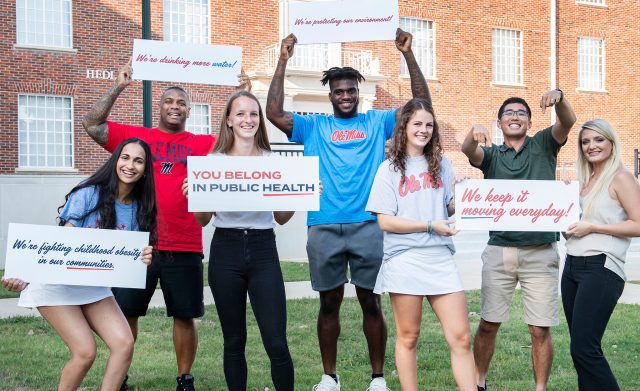
The new curricula will allow Ole Miss students majoring in public health to complete some of their master’s classes before they finish their undergraduate studies. Photo by Logan Kirkland/ Ole Miss Digital Imaging Services
OXFORD, Miss. – The University of Mississippi‘s Department of Health, Exercise Science and Recreation Management is offering offer four new graduate degrees pathways in public health beginning this fall.
The curricula have been approved for:
- An online Master of Public Health program
- A concentration in epidemiology, both online and in-person
- A 4+1 transitional program
- A joint Doctor of Pharmacy/Master of Public Health program in partnership with the School of Pharmacy
The department is also launching an undergraduate minor in public health.
The 4+1 in public health will allow Ole Miss students majoring in public health to complete some of their master’s classes before they finish their undergraduate studies. This will allow them to save a year and accelerate their path to a master’s degree.
“We need more people trained in public health,” said Mary Allison Ford-Wade, interim chair and professor of health, exercise science and recreation management and director of the public health program. “Especially in Mississippi, there is a shortage of MPH-trained individuals.”
Five department faculty members will teach the courses. Ford-Wade and professor Hannah Allen teach courses in community health. Victoria Zigmont teaches epidemiology courses and Ruaa Al-Jaboori teaches courses in biostatistics. Postdoctoral research associate Ashley Jones will teach courses in the areas of community health, mental health and health disparities.
Natasha Jeter, vice chancellor for health and wellness, teaches the health equity course.
The department launched the new undergraduate degree in public health and health sciences in fall 2020. This program has an emphasis in community health and health science studies. An on-campus master’s degree program was created in fall 2021.
“The Bureau of Labor Statistics estimates that the need for epidemiologists is expected to grow by 30% in the next 10 years,” Zigmont said. “There is a need for more epidemiologists to investigate the patterns and causes of diseases and injuries.
“Epidemiologists study infectious and chronic diseases, and identify how to control diseases so that they do not spread within the population.”
Public health graduates can fill a variety of positions, including scientists, behaviorists, managers, leaders, coordinators and educators, Zigmont said.
“Public health professionals are needed in government, public, private, academia and nonprofit settings,” she said.

